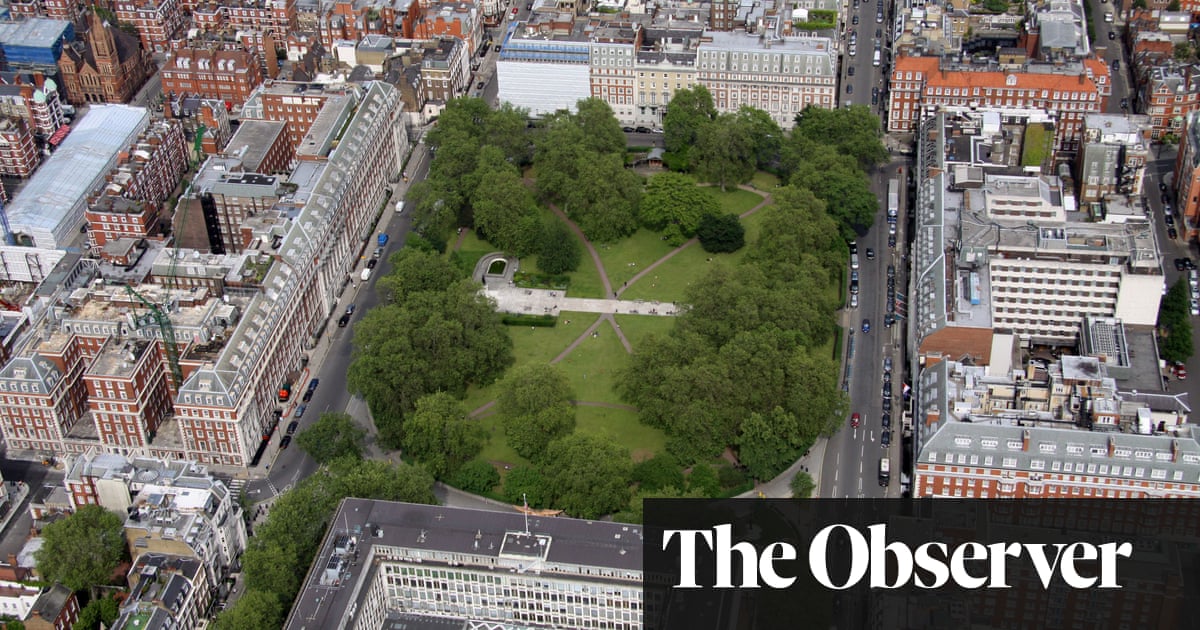Money trail: questions over deposed Bangladeshi elite’s £400m UK property empire

- by Admin
- November 30, 2024

As Sheikh Hasina watched Dhaka fade from view, aboard a military helicopter, crowds were storming her palatial residence.
Far below, about 1,000 Bangladeshis lay dead and countless more injured, the toll of a brutal crackdown by her security forces on student-led protests, sometimes called the Monsoon Revolution. Hasina was soon in India, where she has remained in exile since August.
Now, as Bangladesh rebuilds after her 16-year reign, attention has turned to reclaiming funds allegedly lost to corruption by members of her deposed regime and its allies – money the country’s interim leaders say is badly needed for its reconstruction.
Bangladeshi authorities believe a handful of powerful families and businesses linked to Hasina’s Awami League party acquired billions of pounds by illicit means, including huge loans from state-owned banks that have never been repaid. These funds, investigators believe, may have been siphoned out of Bangladesh using the hundi system of money transfer popular in South Asia.
The destination for some of that money has been, according to investigators and the new regime, a familiar home for illicit funds: the UK.
Dhaka’s interim government has enlisted help in tracking down about £13bn of assets, following a global paper trail they believe leads to hiding places that include London property.
Today, an investigation by the Observer, in partnership with campaign group Transparency International, reveals Bangladeshi power players accused of corruption have amassed a portfolio of British real estate worth almost £400m – and possibly much more.
The network of about 350 properties ranges from modest flats to mansions in gated communities. Their owners include UK and offshore companies owned by some of Bangladesh’s wealthiest and most influential businessmen, as well as two ex-ministers of the Hasina regime. The owners claim the allegations are politically motivated attacks by the new regime.
The findings raise questions about rules governing a phalanx of British firms – including major banks, law firms and estate agents – that earned handsome fees for their services on multimillion-pound property transactions. They have prompted concern among MPs and campaigners about the progress of efforts to combat Britain’s reputation as a magnet for dirty money – in particular whether rules on background checks and identifying sources of clients’ funds are sufficiently robust.
Now, Transparency International says, the UK faces the “first test” of its ambition to make London the anti-corruption capital of the world.
The minister’s land and the land minister
Days after Sheikh Hasina fled Bangladesh, Salman F Rahman was arrested while also allegedly attempting to flee, this time by boat on Dhaka’s network of waterways. Rahman was Hasina’s adviser on private industry and investment. Many in Bangladesh saw him as the most influential figure in the regime.
He now faces allegations of money-laundering by the Dhaka-based Criminal Investigation Department (CID), a specialist investigative unit. The Bangladesh Financial Intelligence Unit (BFIU), part of the central bank, has frozen his bank accounts and those of family members.
Rahman is the co-founder and vice chair of Beximco, one of Bangladesh’s largest conglomerates, with sprawling interests in everything from garment manufacture to pharmaceuticals.
Since the Awami League came to power, benefits that Beximco is reported to have enjoyed include the refinancing of vast loans from state-owned banks. It even held a national monopoly on distribution of the Oxford-AstraZeneca Covid vaccine to a nation of more than 170 million people.
Now, however, its financial affairs – including around £1bn of allegedly unpaid loans – are under investigation by the National Board of Revenue, the country’s tax authority. Bangladesh’s central bank has appointed a custodian to oversee its finances.
Beximco is a family affair. Both Rahman’s son, Ahmed Shayan, and his nephew, Ahmed Shahryar, have held the position of chief executive officer or run key divisions, according to LinkedIn and company publications.
The duo are under investigation by the CID, while Ahmed Shayan’s assets in the country have been frozen.
Authorities tracing that money have alighted on Grosvenor Square, in London’s Mayfair district, among the largest and most prestigious of the capital’s 18th-century garden plazas.
Members of the Rahman family own – or hold stakes in – seven luxury apartments there, most via companies based in offshore jurisdictions. One, bought for £26.75m in March 2022, is owned – via a British Virgin Islands company – by Ahmed Shayan Rahman. He also owns another flat in the square that cost £35.5m.
Offshore companies controlled by his cousin, Ahmed Sharyar, own a further four properties worth a combined £23m, in the same square and nearby.
Lawyers for Ahmed Shayan Rahman and Ahmed Shahryar Rahman said the properties had been acquired in full compliance with financial regulations, including money-laundering rules.
They said the men had no information about Dhaka’s investigation of Beximco and that police investigations into the pair appeared to relate to a civil dispute regarding export trade. They also indicated that the interim Dhaka government was focusing its corruption investigations on political opponents.
The central bank governor, Ahsan Mansur, disputes this. “It’s a legitimate legal process … against those who have taken resources from Bangladesh,” he told the Observer. “We want to get it back.”
Sources close to the interim government point to the fact that officials who make up the authorities investigating the country’s lost assets are not simply enemies of the Awami League but come from a mixture of backgrounds, both in politics and civil society.
But at least one other former Awami League figure, the former land minister Saifuzzaman Chowdhury, is under scrutiny. His bank accounts have been frozen by the BFIU, while a court has ordered the seizure of immovable assets owned by him and family members. He is subject to a travel ban and Dhaka’s Anti-Corruption Commission is investigating allegations that he illegally acquired hundreds of millions of dollars.
Investigators want to know how he and his family acquired a vast UK property portfolio of more than 300 titles, acquired for at least £160m, according to the UK’s Land Registry.
Reporters for Al Jazeera spotted Chowdhury outside one, a £14m London mansion, last month, but he has not responded to requests for comment from the Observer, sent by email and letter. He has said that funds used to buy his overseas properties had come from legitimate businesses outside Bangladesh.
Town, country and Dubai
But it is not just former ministers who have amassed an impressive portfolio of British property. So, too, did some of the business figures who flourished under the Awami League’s reign.
With its tree-lined private roads and professional security guards, Wentworth – built around the golf course of the same name – is the perfect bolthole for a privacy-conscious multimillionaire. The prestigious Surrey estate is home to several members of the Sobhan family, headed by patriarch Ahmed Akbar, known as Shah Alam.
Members of the family own two vast properties here, acquired for a combined £13m and owned via companies registered in the British Virgin Islands, Golden Oak Venture Limited and Kaliakra Holdings Limited.
A third, a French-style mansion, owned by one of Shah Alam’s sons, appeared to be under construction when the Observer visited.
The development itself is owned via an Isle of Man company called Cessnock Limited. A contractor working on the project emphasises its core value – “discretion”.
The Sobhan family’s wealth comes from the Bashundhara Group, a conglomerate with interests spanning real estate, shipping, media and sport. The family were first investigated over corruption allegations in 2008 but later cleared. The fall of the Hasina regime has triggered a fresh probe, including scrutiny of the alleged failure to repay state loans.
On 21 October, a Dhaka court issued a travel ban against six members of the Sobhan family, including Shah Alam, while the BFIU has frozen their bank accounts.
Dhaka authorities are believed to be scrutinising the family assets, including property, expected to be a focus for a new asset recovery taskforce. They believe, despite strict currency controls that prevent citizens from transferring more than $12,000 out of the country, billions have been diverted abroad, including through hubs such as Singapore and Dubai.
Two family properties raise questions about the role of those financial centres as staging posts for money pouring into UK property. One £10m mansion, on a gated estate in London’s Kensington, is owned by Shah Alam’s son and the vice chairman of Bashundhara Group, Safwan Sobhan, through a company called Austino Limited. Austino is registered in the British Virgin Islands but a Land Registry file documenting the purchase of the house directs correspondence to Atro International, a construction materials business based in Dubai.
after newsletter promotion
A similar arrangement relates to a £5.6m Chelsea waterfront property owned by Safwan’s brother, part of a portfolio amassed at a cost of £28m. The apartment was purchased by Red Pine Trading, which is based in the British Virgin Islands but gives its address as a tower in Singapore.
Safwan Sobhan, answering on behalf of himself and his brother, said the family “strongly refute all allegations of wrongdoing and will robustly defend ourselves against these allegations.
“We consider the investigations to be legally weak and politically driven,” he said, referring to a House of Commons research brief from September 2024, which referred to concerns about targeting of Hasina’s allies and associates.
He did not answer questions about the role of Dubai and Singapore in the ownership of UK properties via BVI-registered companies.
Down the road from Safwan Sobhan’s Kensington pad lie a clutch of properties owned by another tycoon who is feeling the Dhaka heat.
Nazrul Mazumder, the founder and chairman of another Bangladeshi conglomerate, Nassa Group, is under investigation by the Dhaka CID for alleged money laundering, while his assets have been frozen by the BFIU.
Bangladeshi authorities are expected to examine how Mazumder and his family members funded the acquisition of five luxury properties in Kensington, south-west London, bought for a combined £38m.
Local inquiries by the Observer indicate that most of the properties have been rented out, ensuring a steady income for Mazumder, as he faces charges in his home country.
Sources close to Mazumder indicated that he rejected any suggestion that the properties were purchased with funds acquired illicitly and would contest allegations made against him in Bangladesh.
The British connection
In practice, the true scale of properties owned by Bangladeshi politicians and business figures could be much greater than that identified by the Observer.
As of 2023, the UK publishes data on overseas entities that hold land titles. But ownership can be easily hidden by simply wrapping the property-owning company inside another offshore vehicle, like an anonymous trust. This loophole is just one concern shared by those who question the adequacy of the UK’s transparency regime.
Now, attention is now turning to the compliance rules governing City firms such as those involved in helping members and allies of the Hasina regime manage their property wealth.
MPs on the all-party parliamentary group (APPG) for anti-corruption want British regulators to look at whether the background checks that UK firms are required to do on property investors are sufficiently robust.
Nazrul Mazumder and a company in which he is a shareholder have borrowed from the British branch of Swiss bank UBS and from Coutts, the private bank that also serves the royal family, to fund his family’s Kensington properties.
Salman F Rahman’s son bought his £26.75m Grosvenor Square pad using a mortgage provided by the UK branch of Credit Suisse, with the assistance of law firm Charles Russell Speechlys. Both he and his cousin, Ahmed Shahryar, bought properties with a mortgage from Barclays. Another London law firm, Jaswal Johnston, has frequently worked on property deals for Rahman family members.
Members of the Sobhan family have benefited from the advice of Orbis London, the UK outpost of a real estate adviser with offices in Liechtenstein, Singapore and Switzerland.
Chowdhury’s vast portfolio was acquired and managed with assistance from firms including the estate agent Moving City, law firm Charles Douglas and lender Market Financial Solutions.
There are many more, too numerous to name. All are required to perform due diligence on their clients’ source of wealth, including enhanced checks on “politically exposed persons” (PEPs) such as Chowdhury and Salman F Rahman, and their families.
“We need stronger anti-money-laundering supervision and enforcement to analyse the source of the wealth flowing through London,” said Joe Powell MP, the APPG’s chair. “I support all efforts by the Bangladesh authorities to trace assets they believe may have been improperly acquired.”
The minister most closely responsible for scrutinising and updating the rules that govern the UK’s financial sector is the City minister, Tulip Siddiq. She also happens to be the niece of Sheikh Hasina.
In 2022, it emerged that Siddiq’s mother, Sheikh Rehana – the sister of Sheikh Hasina and one of the Awami League’s most powerful figures – was living rent-free in a London property owned by Ahmed Shayan Rahman.
There is no suggestion of wrongdoing by Siddiq, who is understood to have recused herself from any policymaking relating to Bangladesh.
This month, members of the APPG wrote to a string of UK regulators and law enforcement bodies urging them to look into whether British firms who assisted Saifuzzaman Chowdhury had done sufficient due diligence. For their part, each firm said it had. The same MPs are calling on the British government to leave no stone unturned in helping Bangladesh recover funds needed to rebuild the country.
Campaigners say this will be a crucial test of the appetite for strengthening London’s ethical credentials.
Transparency International warned that the UK was still seen as a “premier destination for those with suspicious wealth to invest”.
Duncan Hames, policy director of Transparency International, said the government should “work closely with allies around the world and partners in Bangladesh to introduce a sanctions regime which freezes suspicious assets. “Rising to this moment is the first test of the new government’s stated ambition to become the anti-corruption capital of the world.”
Prof Mushtaq Khan, a professor at Soas University of London specialising in corruption, believes the UK government should consider diverting some of the aid budget into helping Bangladesh recover funds.
Ultimately, he says, the recovery effort must focus on honouring those who died in the Monsoon Revolution. “It was the biggest massacre in the history of Bangladesh,” he said. “We can’t let those people down.”
Barclays, Coutts, Charles Russell Speechlys and UBS, which owns Credit Suisse, declined to comment. Orbis London did not return requests for comment. Market Financial Solutions, Charles Douglas Solicitors and Jaswal Johnston all said they had complied with all relevant money-laundering regulations, including carrying out strict due diligence checks on customers’ source of wealth.
Moving City said it had “always conducted detailed and extensive due diligence checks in strict compliance with applicable regulations and industry practice”.
“At all material times, Moving City has understood that the funds used by Mr Chowdhury to purchase UK property originated from legitimate businesses in the UAE, US and UK,” said a spokesperson for the firm.
The Latest News
-
December 22, 2024Donald Trump picks Apprentice producer to be the US special envoy to UK
-
December 22, 2024Daily horoscope: December 22, 2024 astrological predictions for your star sign
-
December 21, 2024UK flights and ferries cancelled owing to high winds as Christmas getaway begins
-
December 21, 2024Prince Andrew plans to move to UAE amid espionage allegations: Report
-
December 21, 2024Inside Britain’s saddest shopping centre: Town centre mall empty just DAYS before Christmas as depressed locals say ‘it’s a disgrace’





